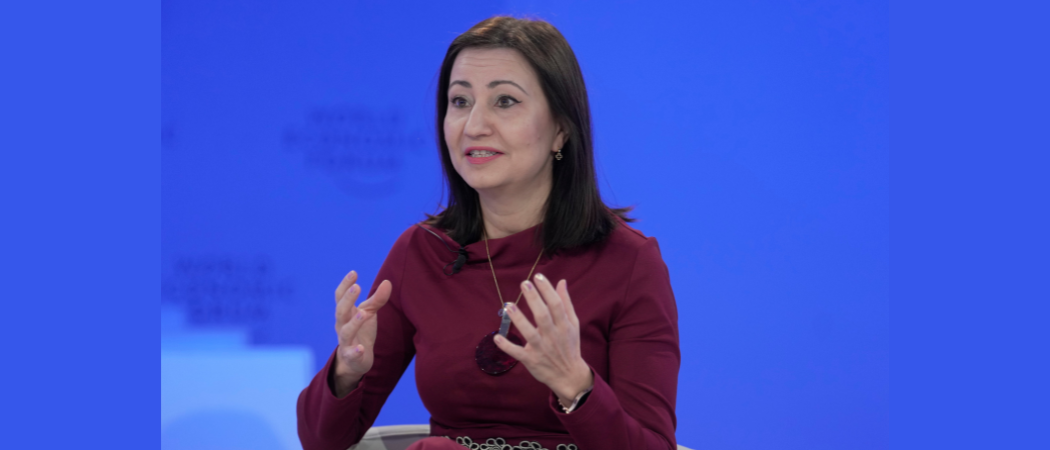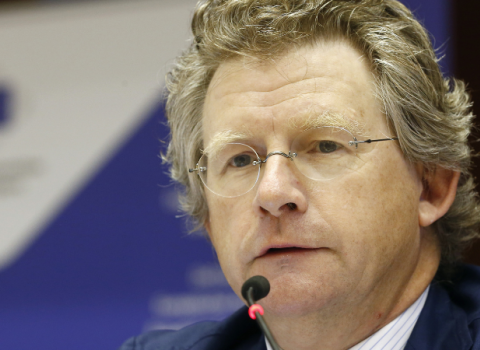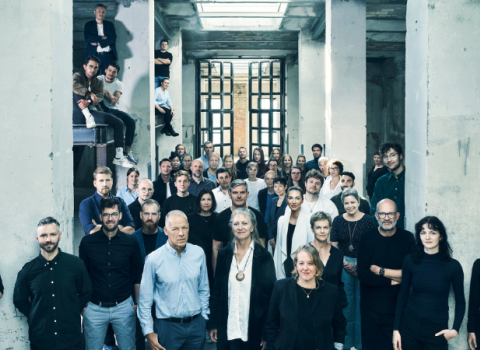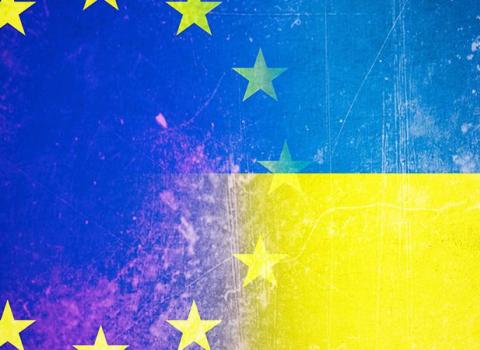During a debate at the World Economic Forum in Davos, Switzerland, the research commissioner called for EU programmes to be more SME-friendly. Separately, she was also grilled on Swiss association to Horizon Europe

Research commissioner Iliana Ivanova speaking at the annual World Economic Forum in Davos, Switzerland. Photo: World Economic Forum / Flickr
Research commissioner Iliana Ivanova has warned that while the European Innovation Council (EIC) has made a good start, it will not be nearly enough to close the persistent gap between the US and EU when it comes to scale-up capital for new companies.
Speaking at a debate on supposedly lagging European innovation at the annual World Economic Forum in Davos, Switzerland, Ivanova said that the EU would have to look at easing regulations on small and medium sized enterprises too.
“Our venture capital market is six times smaller than the US,” she said. “So if you leave [it] only [to] the European Innovation Council alone […] it cannot address this huge gap that exists in the market.”
EIC was introduced as part of the Horizon Europe framework programme with a budget of €10 billion to help develop and scale up new technologies. It has had some success already, Ivanova said, backing companies with a market value of over €1 billion.
“These are good achievements. But is this enough? No, I think we have to continue with the efforts, especially on the regulation side,” she said. The EU has to make its various programmes more “user friendly” for small and medium-sized firms.
The Davos debate, held on 16 January, focused on a well-worn worry: that despite scientific excellence, Europe continues to fail when it comes to turning research prowess into global, innovative companies. Several other panellists agreed with Ivanova’s familiar complaint that the EU lacks the deep-pocketed investors of the US.
The solution, said Spain’s digital minister José Luis Escrivá, is to more fully integrate the EU’s single market.
“In the United States, one of the advantages is a huge single market – in the financial sector, in the labour market. In the EU the financial system is still “Balkanised”, he said. “So I think we still have a problem at the European level in terms of having a single capital market that is comparable to the one in the US in terms of risk taking.
The EU also lacks a joined-up labour market, meaning highly skilled workers who move to the continent are still not able to seamlessly take up jobs in any member state, said Escrivá.
Also on the panel, Bulgarian prime minister Nikolai Denkov argued publicly funded lines of research should come with the understanding that after 10 to 15 years they are handed over to the private sector to scale into commercial projects.
The Netherlands is one country that had done this successfully, he said. “Initially you need funding to create the scientific and innovation area, but after that you give this to the market to develop,” he said.
Is Europe a research leader?
Meanwhile, Maria Leptin, president of the European Research Council, attacked the premise of the debate that Europe is a “world leader” in science and research. “Are we? We've been saying this since the middle of last century,” she said.
Europe now lags the US and China on high impact publications and had weak overall investment in R&D. “Even if we may have been the best in the past I think that's slipping away from us,” said Leptin.
Part of the answer lies in improved researcher mobility. “We still do not have a researcher passport for all of Europe,” Leptin said. “We cannot take our pensions from one country to another.”
Teaching in English would make it easier for researchers across the world to take up positions in Europe, Leptin added.
Also at the Davos meeting Ivanova was pressed several times by Swiss government and university representatives about ongoing Horizon Europe association negotiations.
Switzerland, a longstanding part of the framework programmes, has been locked out of association to Horizon Europe due to a wider political impasse, but there have been recent signs negotiations are now progressing.
Switzerland’s education, research and innovation secretary Martina Hirayama, complained that Europe was increasingly “closing up in strategic areas,” a reference to past Commission proposals to block non-member states from sensitive research calls in areas like quantum and space.
Ivanova countered by saying that Horizon Europe remained “one of the most open” scientific programmes in the world, but could no longer be “naïve” on the risks of “foreign interference” and “leakages” of knowledge.
At a separate debate on ‘Liberating Science’ on 15 January, Ivanova said she hoped Switzerland would “soon” be an associated country.
Next week the Commission will also propose a recommendation on research security, she added.





 A unique international forum for public research organisations and companies to connect their external engagement with strategic interests around their R&D system.
A unique international forum for public research organisations and companies to connect their external engagement with strategic interests around their R&D system.